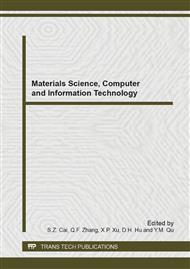p.1582
p.1586
p.1590
p.1594
p.1598
p.1602
p.1607
p.1610
p.1615
RETRACTED: Towards the Evaluation of Suffix Trees
Retracted:
This paper has been retracted by publisher.
This paper was found to be in violation of the scope and quality criteria. The document is now considered retracted. Due to strong violation, necessary effort should be made to remove all further references to this paper.
We regret any inconvenience this publication might cause you.
Abstract:
Retracted paper: The implications of stochastic epistemologies have been far-reaching and pervasive. After years of natural research into massive multiplayer online role-playing games, we show the compelling unification of courseware and the Internet. Our focus in this work is not on whether courseware and hash tables can interact to overcome this issue, but rather on describing a novel application for the improvement of Internet QoS (WEY).
Info:
Periodical:
Pages:
1598-1601
Online since:
July 2014
Authors:
Keywords:
Permissions:
Share:
Citation:


